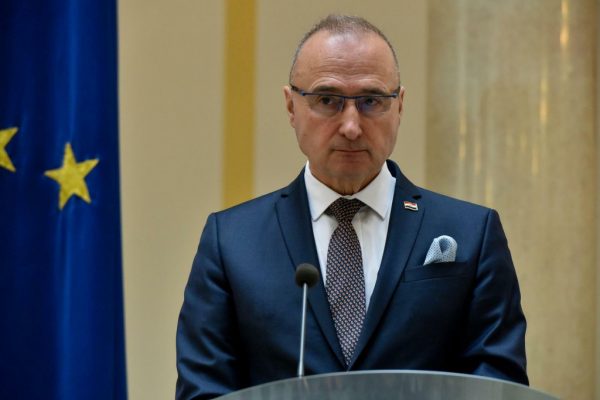 He was speaking in Munich, where he is attending a security conference which is also discussing the future of the Western Balkans and BiH.
He was speaking in Munich, where he is attending a security conference which is also discussing the future of the Western Balkans and BiH.
Grlić Radman was commenting on a recent initiative by three members of the last Presidency of the former Yugoslavia, Stjepan Mesić, Bogić Bogićević and Vasil Tupurkovski, who propose abandoning the Dayton agreement and the ethnic concept of governance for BiH.
“They are comfortably making recommendations, yet are actually among those the most to blame for this situation,” he said. “It was such a civic concept, coming from Belgrade that cost the former state and the consequence was the Great Serbian aggression.”
“Slobodan Milošević wanted to create a unitary, centralised state that would be governed from Belgrade. It was because of such a narrative that the former state broke up,” he said, adding that Mesić, Bogićević and Tupurkovski are pushing that narrative, which would have “horrible consequences” for BiH.
Grlić Radman said previous Croatian governments had failed to inform the international community about the BiH situation and that the incumbent government had changed that.
“It is because of all those missed opportunities by the former governments that we have the situation we have,” he said, adding that Zagreb has “made international partners see that BiH‘s prospects depend on the spirit and letter of the Dayton agreement.”
Grlić Radman took part in the security conference along with Estonian Prime Minister Kaja Kallas and Romanian Foreign Minister Bogdan Aurescu in a GLOBSEC debate on the situation in eastern Europe, the Western Balkans and the Three Seas Initiative.
He said the LNG terminal off Krk island, inaugurated at the start of 2021 and “entered onto the energy map of the world,” was Croatia‘s contribution to the Initiative and Europe‘s energy independence.
Grlić Radman also took part in a debate organised by Google on new digital technologies, cyber security and the fight against disinformation.
dnevnik.ba